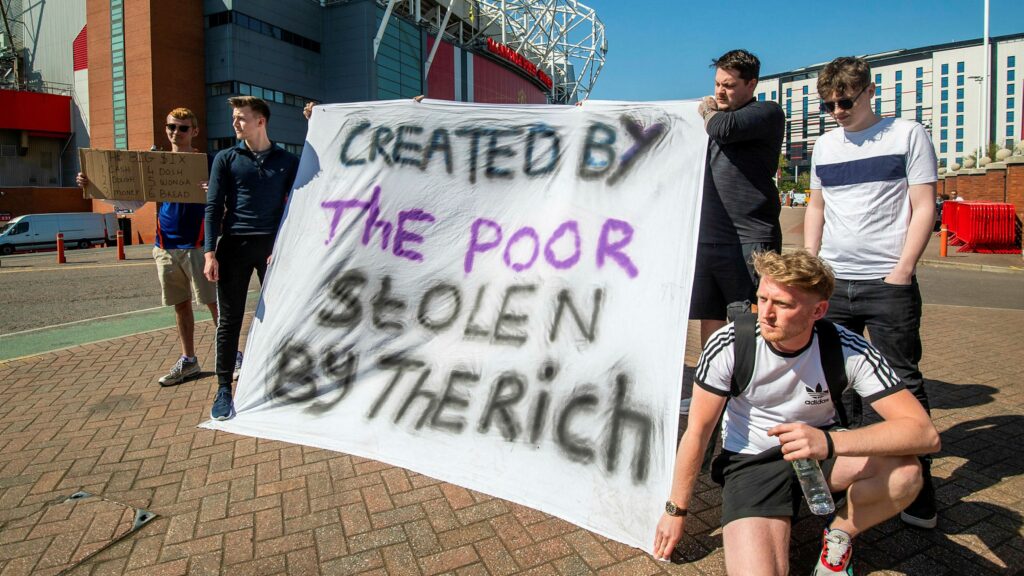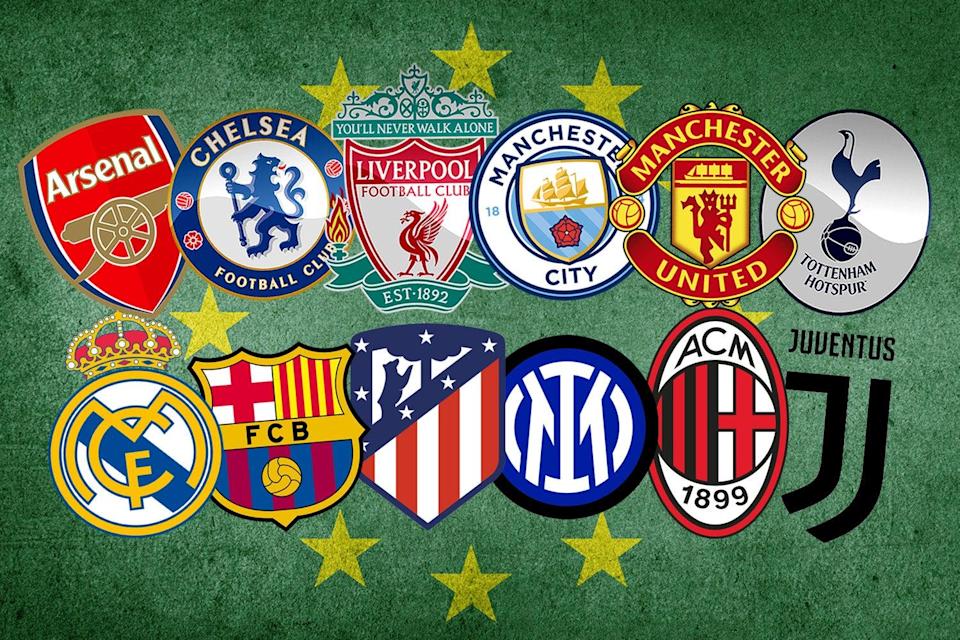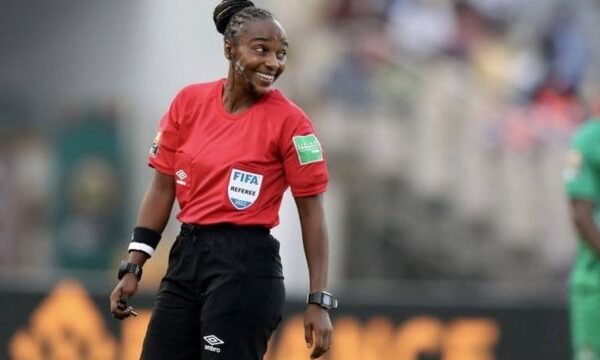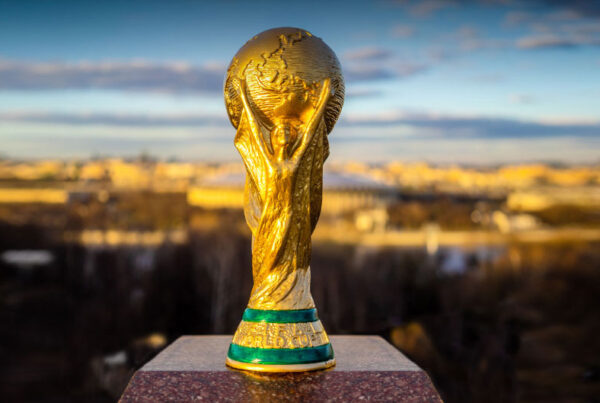In the biggest whirlwind in recent sporting history, we watched as the plans for a breakaway European Super League were announced, discussed, raged against and finally cancelled altogether. All in the space of just two days. A Twitter account named @LongerThanESL created a list of “Things that lasted longer than the ESL”, which summed it up perfectly. It included Evergreen cargo ship’s six-day cameo on the banks of the Suez Canal, the milk in your fridge and that one-time KFC ran out of chicken.
So how did this all come about?
The announcement of a new breakaway league in European football was made in early April with joint statements released by its 12 founding clubs, which make up the biggest clubs in the world. There were six clubs from England, three from Spain, and three from Italy. Most are owned by billionaire businessmen with only two still owned by their fans.
As soon as the announcement was made, the public outcry began. Fans, especially the ones in England, were furious with their owners’ actions for trying to destroy the merit-based system of the game for local fans. Football’s governing bodies, UEFA and FIFA, issued warnings that teams and players involved in ESL would be banned from major competitions, such as the World Cup.
Fans were doubtful, though, whether this resistance would yield favourable results. After all, these are the biggest powerhouses of football. But as it proved in the end, not even a project worth $4.2 billion can survive in today’s business culture if it’s not representing the right set of values to its customers.
Not even 48 hours had passed since its initial announcement when six British clubs pulled out of the project amid the fans’ backlash. In the next 24 hours, four other clubs backed out, which led to many humorous memes aimed at mocking these rogue clubs on social media.

So why did the ESL fail?
The ESL clubs forgot the most important lesson of modern business. They distanced themselves from the right brand values and from their established fans. In a time when people are fed up with seeing the rich stockpiling more money, football’s richest clubs came forward and said they are chasing even more money. In a time when brands are trying to represent the right values, they came out with a plan to take football away from the local fans with a system rewarding the privileged.
What would it say about your brand values if you are one of the 12 highest-earning football clubs in the world and yet complain that you are not earning enough money, as stated by Florentino Perez, the president of Real Madrid?
It didn’t come as a surprise to see these rebel clubs become a scapegoat to everything that is wrong with football and capitalism. But it was a surprise that these men, most of whom were billionaire businessmen, failed to realize how critical a part it would play in the success or failure of the ESL.
ESL clubs failed to anticipate the massive backlash that followed the ESL announcement. And they didn’t anticipate how other brands would scramble away from ESL to save their own brand images.
Amazon Prime, which was rumoured to be an official broadcaster of ESL, immediately took to Twitter to distance itself from any connection to the ESL. The two biggest football broadcasters in football, Sky Sports and BT Sport showed public opposition to the league by offering massive airtime to pundits criticizing the new initiative. Not even a week later, JP Morgan, the investment bank that had agreed to finance the project with $4.2 billion, apologized for its involvement with a pledge to “learn from this”.
Representing the Right Brand Values is the Way Forward
Most professional sports teams have experienced what it is like to play without the fans in the stadiums due to the pandemic and many high-profile players, such as Messi, have stated how much worse it feels to play in empty stadiums. All of the world’s best football clubs were started by ordinary, everyday people and the fans represent the local community for the most part. These clubs have long histories and identities. Therefore, the prospect of taking away a merit-based system is utterly disrespectful to the fans and the founders.
This fiasco of the European Super League teaches brands the importance of representing the right set of values to attract customers. It’s a lesson we have learned again and again with the modern brands trying to align themselves with anti-discriminatory, more inclusive narratives.
Take Nike as an example. Their “Just Do It” and “You Can’t Stop Us” campaigns managed to successfully represent something bigger than their brand or their own success. Campaigns like these convince people to trust their brand by standing with them in matters that are important to them.
Brands need to take a value-centric approach to marketing. It moves beyond simply trying to appeal to people’s emotions. In this approach, brands have to become socially responsible and socially conscious to build deeper connections with their customers. Therefore, the brand becomes not only a product that satisfies customers’ needs, but also something that they can trust too.
As Nike’s continuous efforts in leading value-centric marketing campaigns show, this approach can indeed boost your brand image and popularity among consumers. After its controversial “Dream Crazy” campaign, Nike experienced a growth in sales of 31% in 2018 and a six billion dollar increase in its brand value.
There is enough evidence to support that aligning yourself with the right set of values is the best way forward for modern brands. And ESL failure proved that no brand is too big to fail if their values do not resonate with the end-user or, in this case, the fans. After all, what would football be without the fans.
Play For Goals is dedicated to harnessing the power of football as a tool for social good. Football brings so much joy to so many people around the world. We hope that as this brand grows, we will be able to achieve our vision of connecting players all over the world and helping those in underserved or marginalized communities.











